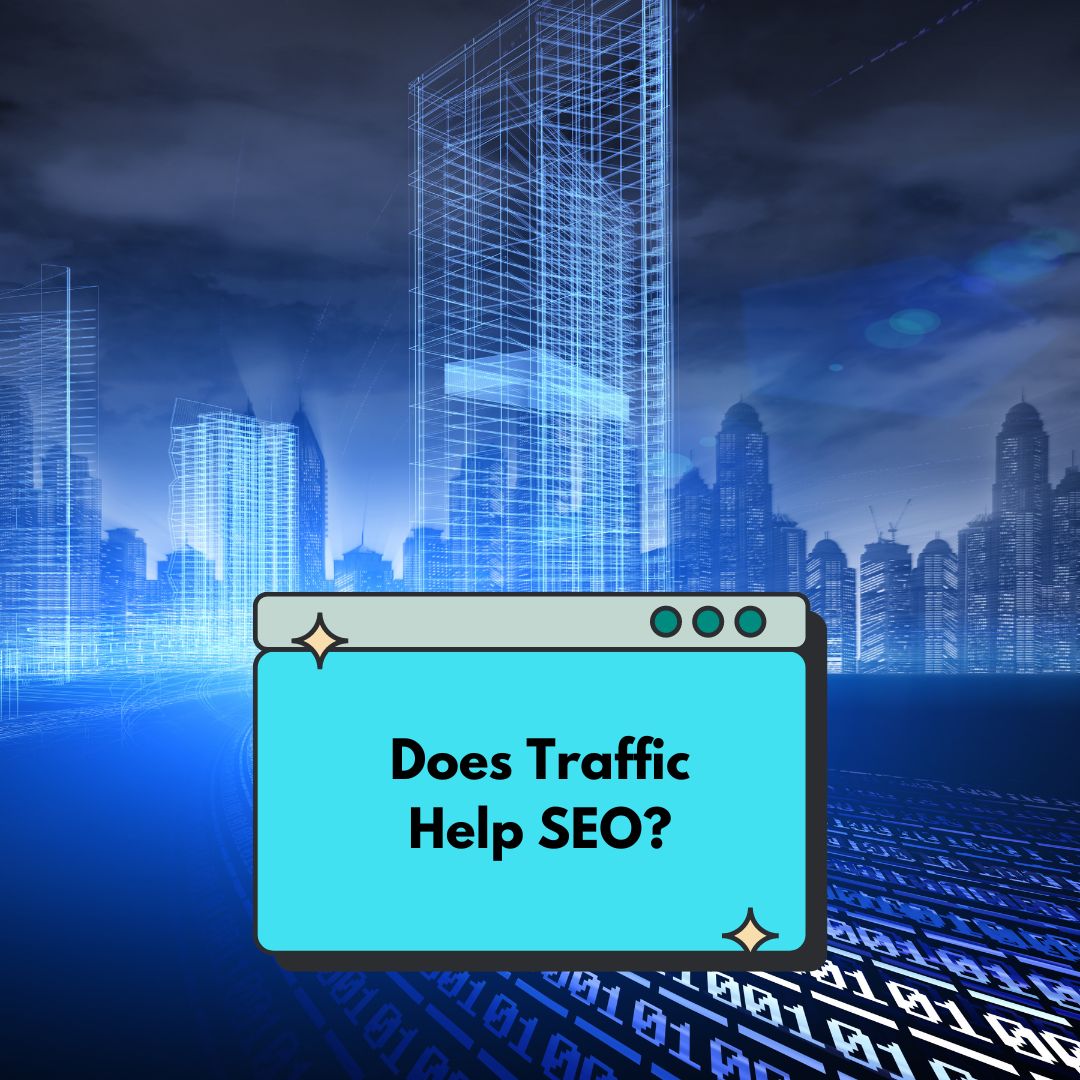What is the Google Sandbox? The term "Google Sandbox" refers to a speculated phase where…

Does Traffic Help SEO?
Does Traffic Help SEO?
Introduction
You must be wondering, does traffic help SEO? Perhaps yes or perhaps not. The relationship between traffic and SEO is a topic that intrigues many website owners and digital marketers. Does having more traffic lead to better SEO? Or is it the other way around? This blog post aims to explore the connection between website traffic and SEO, and how they influence each other.
Understanding the Relationship
SEO as a Traffic Driver
SEO primarily focuses on improving a website’s visibility in search engine results, which, in turn, can drive more traffic to the site. However, it’s essential to understand that traffic itself is not a direct ranking factor for SEO. Instead, the quality of traffic and how users engage with your site can have an indirect effect on your SEO performance.
Traffic Quality and User Engagement
Search engines like Google use various metrics to gauge the relevance and usefulness of a website, including bounce rate, time spent on the site, and click-through rate (CTR). High-quality traffic, where visitors genuinely engage with your content, can positively influence these metrics, potentially leading to better SEO rankings.
Does Increasing Traffic Improve SEO?
The Myth of Traffic Volume
There’s a common misconception that simply increasing the volume of traffic will boost SEO. However, SEO rankings are more influenced by the relevancy and quality of content, site structure, mobile-friendliness, and other technical SEO factors. While high traffic numbers are desirable, they don’t automatically translate to better SEO performance unless they reflect genuine user engagement and content relevance.
The Role of User Behavior
The way users interact with your site can impact SEO. For instance, if a significant portion of your traffic consistently finds your content valuable (evidenced by longer session durations and lower bounce rates), it signals to search engines that your site is a credible and valuable resource. This positive user behaviour can indirectly influence your site’s SEO ranking.
The Impact of Backlinks
One of the most significant ways in which traffic can impact SEO is through backlinks. If your site is receiving a high volume of traffic, especially from reputable sources, it increases the likelihood of other sites linking to your content. These backlinks are a critical ranking factor in SEO, as they indicate to search engines that other sites view your content as authoritative and trustworthy.
SEO Best Practices for Traffic Improvement
To leverage SEO effectively for traffic improvement, focus on the following:
- Keyword Optimisation: Research and target relevant keywords that align with your audience’s search intent.
- Quality Content Creation: Produce informative, engaging, and valuable content that addresses your audience’s needs and queries.
- On-Page Optimisation: Optimize title tags, meta descriptions, headings, and URLs with targeted keywords.
- Mobile-Friendliness and Site Speed: Ensure your website is mobile-friendly and loads quickly to enhance user experience.
- Backlink Strategy: Encourage high-quality backlinks by creating shareable content and engaging in outreach activities.
Conclusion
While high traffic volumes are beneficial, they do not directly impact SEO rankings. Instead, the focus should be on attracting quality traffic through sound SEO practices, creating engaging and relevant content, and optimising your site’s technical aspects. The goal is to ensure that your site not only attracts visitors but also provides them with value, thereby improving user engagement metrics that indirectly influence SEO. Remember, in the world of SEO, quality always trumps quantity. Want to know more about SEO? Contact us here today.



